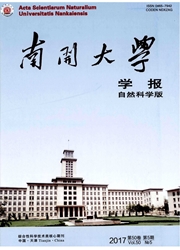

 中文摘要:
中文摘要:
研究了丙环唑及其代谢物对小鼠胚胎细胞的恶性转化作用.结果发现丙环唑及其代谢活化产物均能够引起小鼠胚胎成纤维细胞发生转化,并形成大量典型的Ⅲ型转化灶.进一步利用刀豆球凝集实验和琼脂集落实验探究转化细胞表面刀豆球蛋白A(ConA)受体分布和锚定非依赖生长特性,确定丙环唑诱导细胞恶性转化的能力,发现转化细胞在ConA稀释液中凝集成块;在半固体琼脂培养液中成集落生长,失去接触抑制的特性,具有成瘤的可能,因此丙环唑对人类健康的潜在威胁不容忽视.
 英文摘要:
英文摘要:
In order to investigate and research the propiconazole carcinogenicity,the mouse embryonic cell morphological transformation test was performed.The propiconazole dosage ranged from 0,40,60 to 80 μg/mL were designed.The results showed that propiconazole and its metabolites activation products can induce NIH/3T3 cell malignant transformation,and a large number of typical type Ⅲ transformed focuses had been formed.The ConA agglutination test and soft agar assay has been carried out to explore the acceptor of concanavalin A(ConA) on the surface of the transformed cell distributed and the non-dependent growth characteristics,determine the malignant transformation ability of the propiconazole induced cell,and prove the transformed cell has been agglutinated in the ConA solution.And also found that it is grown in a colony in the semi-solid agar culture medium,and lost the contact inhibition properties,which is possible to form the tumor,and therefore the potential threat of propiconazole to the human health can not be ignored.
 同期刊论文项目
同期刊论文项目
 同项目期刊论文
同项目期刊论文
 期刊信息
期刊信息
